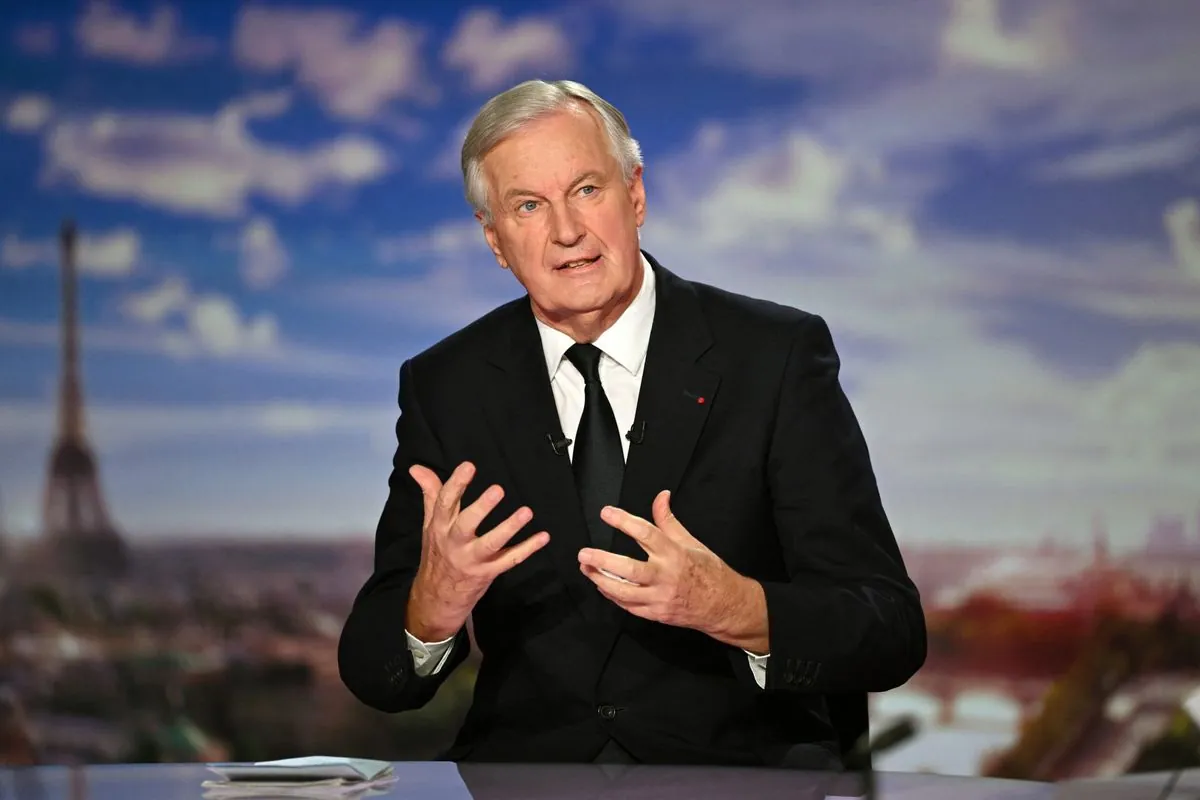Michel Barnier, France's recently appointed Prime Minister, is contemplating fiscal measures targeting affluent individuals and major corporations as part of efforts to address the country's budget deficit. This development comes as France grapples with financial challenges and seeks to adhere to European Union budgetary regulations.
Barnier, who previously served as the EU's chief Brexit negotiator, assumed the role of Prime Minister in early September 2024, following a period of political uncertainty after July's inconclusive elections. In his inaugural prime-time interview, Barnier addressed the nation's fiscal situation, emphasizing the need for "tax justice" while reassuring the general public.
"I am not going to raise taxes further on all French people, who already pay the highest taxes of any of our European partners, neither on the most modest people, nor on people who work, nor on the middle classes."
However, Barnier did not rule out the possibility of increased contributions from the wealthiest segments of society and certain large enterprises through "targeted levies." This approach aims to balance fiscal responsibility with social equity.
France's financial landscape has been shaped by several factors, including substantial state expenditures during the COVID-19 pandemic and efforts to mitigate inflation following the Ukraine conflict. These circumstances, coupled with lower-than-anticipated state revenues since 2023, have placed strain on the country's finances.
The nation's public deficit is projected to reach 5.6% of GDP in 2024, significantly exceeding the EU's 3% threshold for member states. This situation has prompted formal proceedings against France for violating EU budgetary rules, necessitating a demonstrable commitment to financial recovery.
Emmanuel Macron's administration has faced criticism for its fiscal policies, including the partial elimination of the wealth tax and the introduction of a 30% flat tax on capital income. While these measures were initially praised for their pro-business stance, they have also been scrutinized for their impact on income inequality.
Barnier's cabinet, appointed by Macron, represents a shift towards the political right, comprising allies of the president, conservative Republicans, and centrist groups. This composition has drawn criticism from the left-wing opposition, who have announced plans to introduce a no-confidence motion in parliament.
In response to these challenges, Barnier has called for unity and respect within his cabinet, urging ministers to prioritize action over communication and to maintain a modest approach in their new roles. He has characterized his government as "republican, progressive, and pro-European" in an effort to counter claims of it being the "most right-wing government of the Fifth Republic."
As France navigates these complex fiscal and political waters, the coming weeks will be crucial in determining the effectiveness of Barnier's approach and its impact on the nation's economic trajectory.
